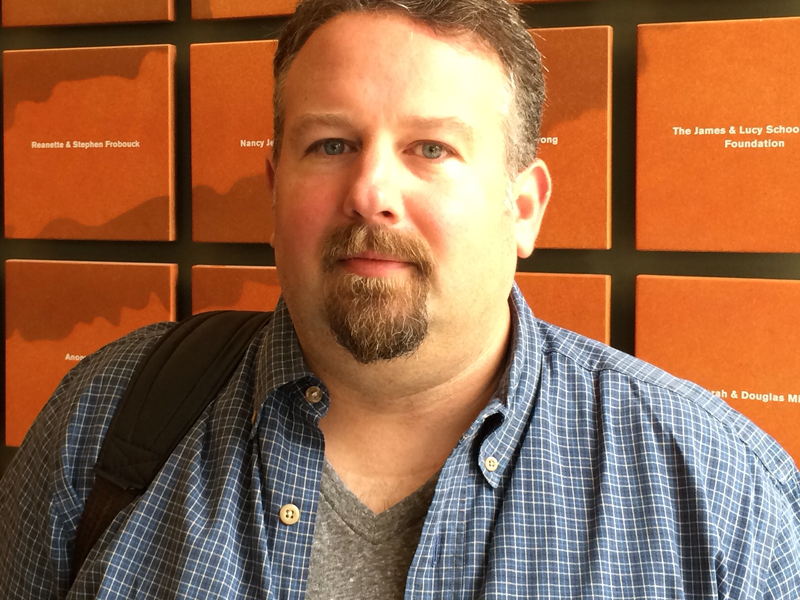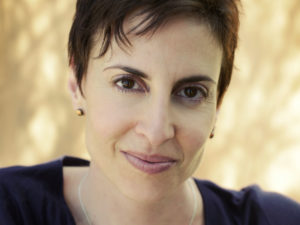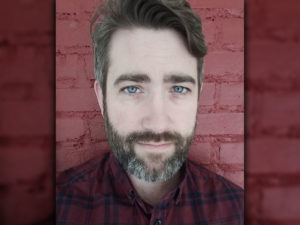
Dave Newman is the author of the novels Raymond Carver Will Not Raise Our Children (Writers Tribe Books, 2012) and Please Don’t Shoot Anyone Tonight (World Parade Books, 2010), and the poetry collection The Slaughterhouse Poems.
He’s worked as a truck driver, a book store manager, an air filter salesman, a house painter, and a college teacher. More than 100 of his poems and stories have appeared in magazines throughout the world, including Gulf Stream, Word Riot, Smokelong Quarterly, Rattle, Wormwood Review, Tears in the Fence (UK), and The New Yinzer. He has been the featured writer and on the cover of both 5AM and Chiron Review. Anthologies include Beside the City of Angels (World Parade Books) andThe Autumn House Anthology of Contemporary Poetry (Autumn House Press). Newman has won three chapbooks prizes. In 2004, he received the Andre Dubus Novella Award. He lives in Trafford, Pennsylvania with his wife, the writer Lori Jakiela, and their two children.
KILLING FLOOR
(from Slaughterhouse Poems, White Gorilla Press, 2013)
Dead cows the size of small cars
and pigs so fat
you could crawl
inside their carcasses
hung from steel chains
dripping from the rafters.
If I could have walked on the ceiling.
I would have looked up
and seen terrible balloons.
Rebecca Schumejda: In your latest collection the slaughterhouse poems, the young narrator explores the experience of working at a slaughter house. Assuming, you drew from experience, can you discuss writing about the slaughterhouse decades later? Were you writing these pieces over the years or did they come out when you started the book?
Dave Newman: I started writing about the slaughterhouse when I was still an undergraduate, which was twenty-one years ago now. All of those poems got tossed out for sheer suckiness, but I liked the subject matter, and it seemed true to the area of the world I want to portray in books—Western Pennsylvania—so I stuck with it for years. Probably having distance allowed for some compassion to creep in. I’m well into middle-age now and it’s a lot easier to understand the struggles of people—even people who are mean-spirited or total fucknuts—because adulthood diminishes us all in some ways. It’s good to use that smallness to create well-rounded poems, I think, poems that show all sides.
RS: “Hosing The Killing Floor” is a short poem compared to the others in the collection, but is a poem that leaves the reader with a haunting image. Is this because the image remained with you all these years and if so when you wrote the piece did it come out in this clear, concise and poignant way or did you work through several revisions?
DN: Thanks. I think the image was clipped from a longer piece originally. Then I revised it until it became its own poem. Writing long narrative poems generates more material than is useful so I cut and save that stuff and come back to it.
The image did remain with me, but it needed to be sorted. Life repeats itself endlessly, especially with work. The job of the writer or the artist is to find which moment from the repetition matters, which moment illuminates. Art grabs the one moment or conversation that is the same as all the other moments but somehow better.
RS: Can you talk about your commitment to the working-class genre?
DN:I love books about work, and I mean that in the broadest sense. One of my favorite novels is The Lemon by Mohammed Mrabet. The Lemon is the story of a kid in Morocco, desperately trying to find a job and survive. One of my favorite living poets is Ginger Andrews, who writes about cleaning churches. Work is what almost all of us do in the world, so it’s important to find meaning there, even if the meaning is unpleasant. It might be an unrealistic goal, but I write for people who hold jobs they don’t like and have to find purpose elsewhere, even though most of those people don’t have the time or energy to read. I’ve spent a lot of my life without the time and energy to read but I’ve read and it’s kept me sane and alive, no bullshit. I’d be bridge-diving to concrete without books, so that’s where I put my free time and that’s where I spend my money, on literature. Thanks, books, you’ve been a huge help.




